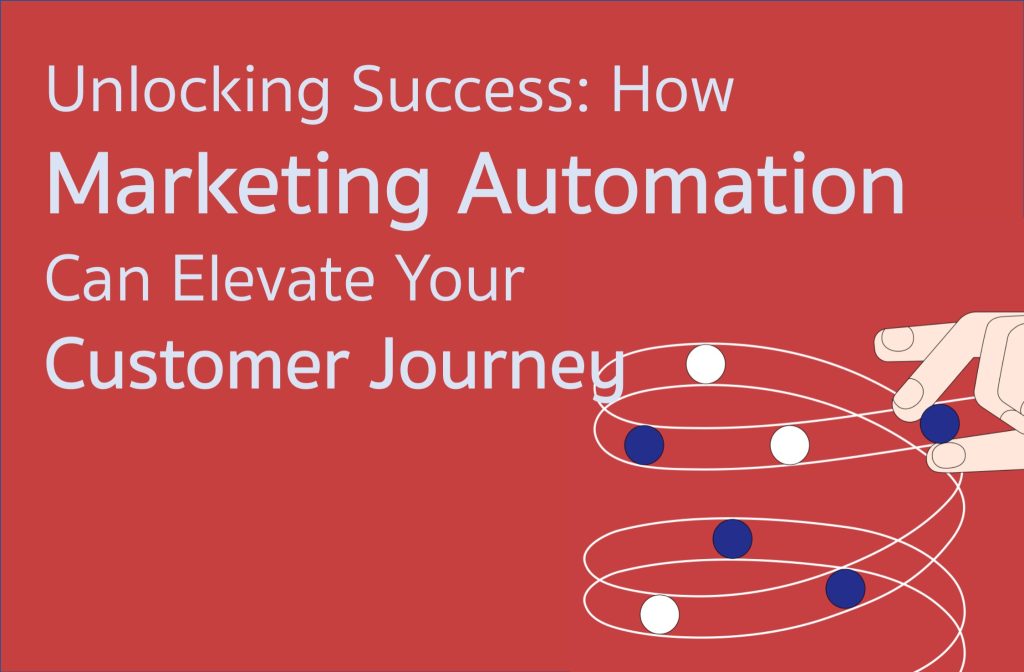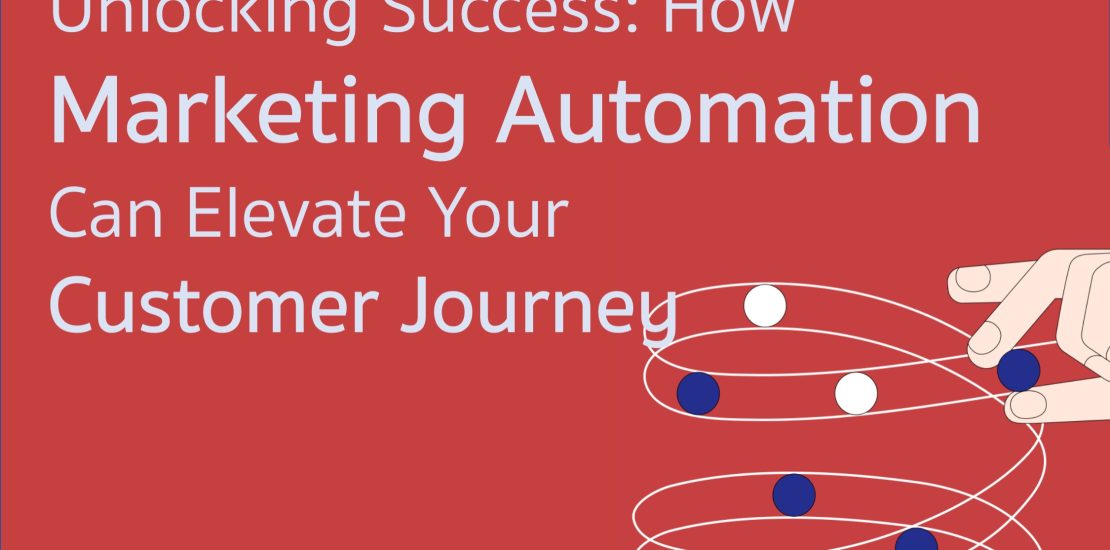How Marketing Automation Can Elevate Your Customer Journey
In today’s fast-paced business landscape, providing a seamless and personalized customer journey is crucial for success. Marketing automation has emerged as a powerful tool to unlock that success, enabling businesses to streamline their marketing efforts, enhance customer experiences, and drive conversions. With the right marketing automation strategies in place, companies can optimize their campaigns, nurture leads, and deliver targeted content at every touchpoint of the customer journey.
By automating repetitive tasks and leveraging data-driven insights, brands can create highly personalized and relevant interactions with their customers. From personalized email campaigns to dynamic website content, marketing automation allows businesses to deliver the right message to the right audience at the right time. This not only saves time and resources but also helps build lasting relationships with customers.
In this article, we will explore how marketing automation can elevate your customer journey and unlock your business’s true potential. We will delve into the benefits, strategies, and best practices for implementing marketing automation effectively. So, buckle up and get ready to take your customer journey to new heights with marketing automation.

Understanding the Customer Journey
To fully grasp the impact of marketing automation on the customer journey, it’s essential to understand what the customer journey entails. The customer journey refers to the overall experience a customer has with a brand, from the first touchpoint to post-purchase interactions. It consists of several stages, including awareness, consideration, decision, and post-purchase.
At each stage of the customer journey, customers have different needs and expectations. Marketing automation allows businesses to align their marketing efforts with these needs and deliver personalized experiences. By mapping out the customer journey and understanding the pain points and desires of customers at each stage, businesses can create targeted campaigns that resonate with their audience.
Benefits of Marketing Automation in Enhancing the Customer Journey
Implementing marketing automation can have a multitude of benefits in enhancing the customer journey. Let’s explore some of the key advantages:
- Efficiency and Time Savings: Marketing automation allows businesses to automate repetitive tasks, such as sending personalized emails or updating customer profiles. This frees up valuable time for marketers to focus on strategic initiatives and creative campaigns.
- Personalization: Personalization is key to delivering a remarkable customer experience. Marketing automation enables businesses to segment their audience based on various criteria and deliver tailored content to each segment. This personalized approach helps build stronger relationships with customers and increases engagement.
- Lead Nurturing: Marketing automation allows businesses to nurture leads throughout the customer journey. By delivering relevant content at each stage, businesses can guide leads through the sales funnel and increase the likelihood of conversion.
- Data-Driven Insights: Marketing automation platforms provide valuable data and insights into customer behavior, preferences, and engagement. By analyzing this data, businesses can make informed decisions, optimize their campaigns, and improve the overall customer journey.
Key Features of Marketing Automation Tools
To effectively leverage marketing automation, it’s important to understand the key features and capabilities of marketing automation tools. Here are some essential features to look for:
- Email Automation: Email automation is a fundamental feature of marketing automation tools. It allows businesses to send personalized emails triggered by specific actions or events, such as welcome emails, abandoned cart reminders, or follow-up emails.
- Lead Scoring and Segmentation: Lead scoring helps businesses prioritize leads based on their readiness to purchase. Marketing automation tools enable businesses to assign scores to leads based on their engagement level, demographics, and behavior. Segmentation, on the other hand, allows businesses to divide their audience into distinct groups based on specific criteria, enabling personalized communication.
- Campaign Management: Effective campaign management is crucial for successful marketing automation. Look for tools that allow you to create, manage, and track campaigns across multiple channels, such as email, social media, and website.
- Analytics and Reporting: Analytics and reporting features provide valuable insights into the performance of your marketing automation campaigns. Look for tools that offer comprehensive analytics, including metrics like open rates, click-through rates, conversion rates, and ROI.
Implementing Marketing Automation in Your Business
Implementing marketing automation in your business requires careful planning and execution. Here are some steps to help you get started:
- Define Your Goals: Start by defining your goals and objectives for implementing marketing automation. Are you looking to increase lead generation, improve customer retention, or enhance overall customer experiences? Clearly defining your goals will help you choose the right marketing automation strategies.
- Map Your Customer Journey: Understand the different stages of your customer journey and identify the touchpoints where automation can add value. Map out the customer journey and define the key actions or triggers that will initiate automated campaigns.
- Select the Right Tool: Research and evaluate different marketing automation tools to find the one that best suits your business needs. Consider factors like ease of use, scalability, integration capabilities, and customer support.
- Integrate Your Systems: To fully leverage marketing automation, it’s crucial to integrate your marketing automation tool with your existing systems, such as CRM and e-commerce platforms. This ensures seamless data flow and allows for more personalized and targeted campaigns.
- Create Relevant Content: Content plays a vital role in marketing automation. Develop content that aligns with each stage of the customer journey and resonates with your target audience. Ensure the content is valuable, engaging, and tailored to specific segments.
- Test, Measure, and Optimize: Continuously test and measure the performance of your marketing automation campaigns. Analyze the data and make necessary adjustments to optimize your campaigns for better results.
Best Practices for Effective Marketing Automation
To maximize the effectiveness of your marketing automation efforts, consider these best practices:
- Segment Your Audience: Segmenting your audience allows for more targeted and personalized communication. Divide your audience based on demographics, behavior, preferences, or engagement level, and deliver relevant content to each segment.
- Automate with Purpose: Avoid automating for the sake of automation. Every automated campaign should have a specific purpose and provide value to your audience. Ensure your automated messages are timely, relevant, and meaningful.
- Maintain a Clean Database: A clean and up-to-date database is essential for successful marketing automation. Regularly clean your database by removing inactive or irrelevant contacts and updating contact information.
- Practice A/B Testing: A/B testing allows you to compare different variations of your campaigns to identify what works best. Test different subject lines, email templates, or call-to-action buttons to optimize your campaigns for higher engagement and conversions.
- Monitor and Adjust: Continuously monitor the performance of your marketing automation campaigns. Pay attention to key metrics like open rates, click-through rates, and conversions. Make adjustments and improvements based on the insights gained from the data.
Case Studies of Successful Marketing Automation Campaigns
To better understand the impact of marketing automation, let’s explore a few case studies of successful campaigns:
- Company X – Email Drip Campaign: Company X implemented an email drip campaign to nurture leads and guide them through the sales funnel. By sending a series of personalized emails based on user behavior and preferences, they achieved a 30% increase in conversions and a significant improvement in customer engagement.
- Company Y – Dynamic Website Content: Company Y leveraged marketing automation to deliver dynamic website content based on user preferences and behavior. By personalizing the website experience, they saw a 25% increase in average time spent on the website and a 15% increase in page views per visit.
- Company Z – Lead Scoring and Segmentation: Company Z implemented lead scoring and segmentation strategies to prioritize and target their leads effectively. By delivering tailored content to specific segments, they achieved a 20% increase in lead conversion rates and a 15% increase in customer retention.
These case studies highlight the power of marketing automation in driving results and enhancing the customer journey.
Challenges and Limitations of Marketing Automation
While marketing automation offers numerous benefits, it’s important to be aware of the challenges and limitations that come with it. Here are a few to consider:
- Complexity: Implementing and managing marketing automation can be complex, especially for businesses with limited resources or technical expertise. It requires careful planning, integration, and ongoing monitoring.
- Data Quality and Privacy: Marketing automation relies heavily on data. Ensuring data quality and privacy compliance is crucial to maintain customer trust and deliver personalized experiences.
- Lack of Human Touch: While automation enables personalized communication, it can lack the human touch that some customers value. Striking the right balance between automation and human interaction is essential.
- Oversaturation: With marketing automation becoming more prevalent, customers are inundated with automated messages. Cutting through the noise and delivering truly valuable content is a challenge.
Conclusion: The Future of Marketing Automation
Marketing automation has proven to be a game-changer in elevating the customer journey. By automating repetitive tasks, personalizing interactions, and leveraging data-driven insights, businesses can deliver seamless experiences and drive conversions. As technology advances and customer expectations evolve, marketing automation will continue to play a vital role in helping businesses unlock their true potential.
To thrive in the digital age, it’s crucial for businesses to embrace marketing automation as a powerful tool for success. By understanding the customer journey, implementing best practices, and continuously optimizing campaigns, businesses can create memorable experiences that keep customers engaged and satisfied. So, embark on your marketing automation journey and unlock the success that awaits!
More information about Freshworks, please contact:
Sundae Solutions Co., Ltd.
T| +6626348899 E| sales@sundae.co.th
W| https://www.sundae.co.th/en/solutions/crm-and-customer-experience/freshworks/
- May 5, 2024
- Posted by: sundaeadmin
- Category: Articles-EN


